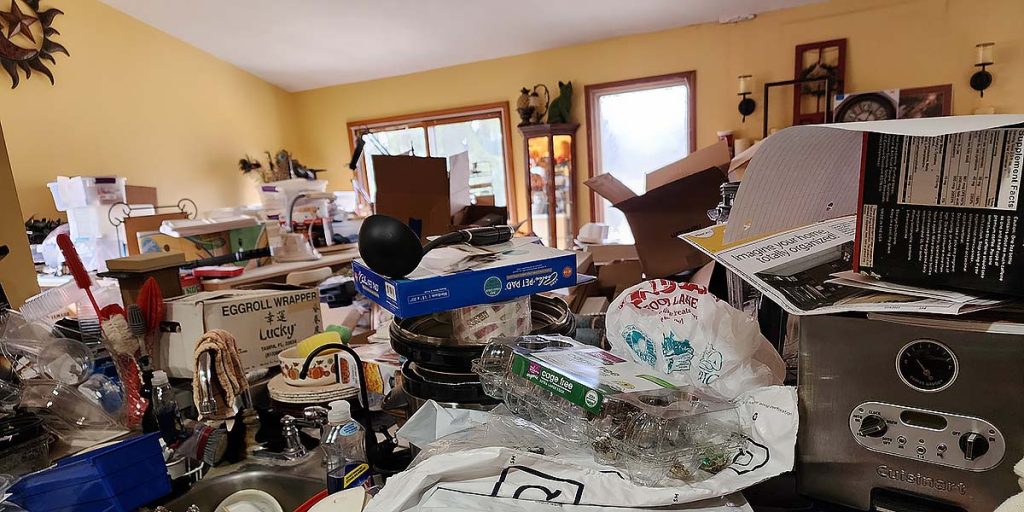Navigating the Psychological Challenges of a Hoarder House Sale
Selling a family home is often an emotional endeavor, but the process becomes significantly more complex and emotionally charged when the property in question is a hoarder house. For families deciding how to sell a hoarder house, the challenges are not just financial or logistical, but deeply psychological. The clutter and condition of the home often reflect complicated, long-standing issues that extend beyond mere objects to touch the very heartstrings of family dynamics and personal history.
The Burden of Clutter
The first and perhaps most immediate psychological hurdle in selling a hoarder house is confronting the clutter itself. For many, the possessions accumulated in a hoarder home are not just physical items but emotional anchors that are intimately tied to memories, habits, and often, the mental health challenges of a loved one. The process of sorting through and deciding the fate of each item can trigger intense feelings of grief, guilt, and anxiety. Family members may feel overwhelmed by the magnitude of the task and the emotional weight of discarding items that have significant sentimental value.
Moreover, the disorder within a hoarder home can symbolize personal turmoil or family distress, making the cleaning process feel like an unsettling exposure of private life. This can create a sense of vulnerability and sadness as personal memories are sifted through and evaluated by outsiders, adding an extra layer of emotional complexity to the decision-making process.
Navigating Family Dynamics
Selling a hoarder home often requires families to navigate complex dynamics and conflicting emotions. Disagreements can arise over the best approach to clearing the house, who takes responsibility for various tasks, and how to distribute or dispose of possessions. These discussions can reopen old wounds and highlight sibling rivalries or unresolved conflicts, making the process not just a physical cleanup but a metaphorical one as well.
The act of dismantling a hoarder home can also challenge family members’ perceptions of their upbringing and family history. Some may feel a need to defend the hoarder’s actions due to loyalty or unresolved grief, while others may push for quick disposal and sale of the property. This can lead to feelings of betrayal or alienation among family members, complicating the emotional landscape further.
The Relief of Resolution
Despite the challenges, completing the sale of a hoarder house can also bring significant psychological relief. For many, the sale represents a closing of difficult chapters and a release from burdens that may have been carried for years. There is often a profound sense of accomplishment in overcoming the daunting hurdles associated with clearing and selling such a property.
Additionally, selling the home to a real estate investor who understands the sensitive nature of hoarding can ease the process considerably. Investors with experience in hoarder homes are often more adept at handling the sale with empathy and efficiency. This not only ensures a smoother transaction but also helps preserve the dignity of the family involved.
Practical Steps for Emotional Management
When dealing with the sale of a hoarder house, it’s important for families to take practical steps to manage emotional stress. Seeking the help of professionals who specialize in hoarding can provide guidance and support throughout the cleaning and selling process. Counseling services may also be beneficial for family members struggling with the emotional demands of the situation.
The journey of selling a family hoarder home is fraught with emotional complexities. However, understanding the psychological impacts and seeking appropriate help can make a significant difference. By approaching the sale with sensitivity and support, families can navigate this difficult path and find a way to move forward with hope and healing.
What to Expect from Your Real Estate Agent
When preparing to sell a property, particularly one that was previously a hoarder home, understanding what to expect from your real estate agent is crucial. Agents typically require that the house be thoroughly cleaned out and brought up to code before they agree to list it. This standard is not just about aesthetics; it’s about ensuring that the property is safe and that potential structural issues hidden by clutter are addressed.
This initial preparation can be quite costly, potentially running into thousands of dollars, depending on the extent of the clutter and damage. Additionally, due to the stigma and potential complications associated with selling former hoarder houses, some agents may be hesitant or even refuse to take on such listings, fearing that the property’s history could make the sale more challenging.
Disclosing the Property’s History
When selling a home that was once a hoarder house, transparency is key, though not all historical details are mandatory to disclose. While specific disclosure requirements can vary by location, generally, you are not legally required to inform potential buyers that the home previously belonged to a hoarder.
You must allow buyers a designated period to inspect the property thoroughly. During this time, if buyers uncover signs of neglect or improper maintenance that were not initially evident, they may reconsider their offer or decide to withdraw from the purchase altogether. This step in the buying process is critical and can sometimes lead to sales falling through if the buyers feel the home’s past issues could lead to future complications.



